Summer is finally here, and with it comes sunshine, outdoor activities, and the need to keep cool. As the temperatures rise and our reliance on trusty boilers decreases, it’s time to learn how to power down and give our boilers a much-needed break.
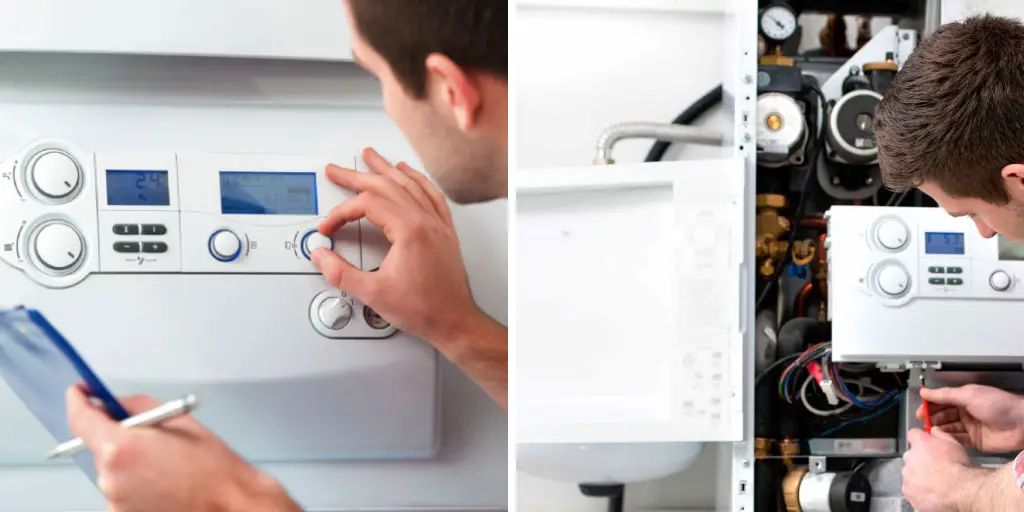
In this blog post, we will explore the essential steps on how to turn off boiler for summer months, ensuring that your home is energy-efficient, safe, and ready to embrace the sizzling days ahead. Whether you’re a seasoned homeowner or a newbie in the world of boiler maintenance, this guide will equip you with the knowledge and confidence to tackle this task effectively.
So, let’s dive in and discover the secrets to a seamless boiler shutdown, allowing you to make the most of the summer season without any worries or unnecessary expenses.
What Will You Need?
Before we get started, gathering all the necessary tools and equipment to help you complete this task with ease is essential. Here’s a list of items you’ll need:
- Screwdriver
- Wrench
- Boiler manual (if available)
- Patience and a steady hand
Now that you have everything at your disposal, let’s move on to the steps on how to turn off the boiler for summer.
10 Easy Steps on How to Turn Off Boiler for Summer
Step 1. Locate the Boiler Switch
The first step in turning off your boiler for the summer is to locate the boiler switch. This switch is typically located on or near the boiler and will be labeled as such. If unsure where your boiler switch is, consult your owner’s manual or contact a professional.
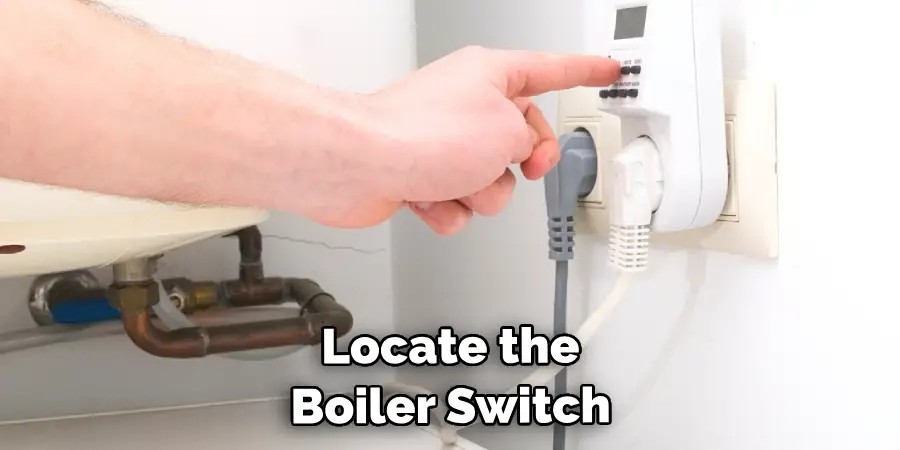
Step 2. Turn Off the Power Supply
Once you have located the boiler switch, turn it off to cut off the power supply to your boiler. This will prevent accidental heating during the summer months and save you money on your energy bill. You may also want to turn off the circuit breaker that supplies power to your boiler for added safety.
Step 3. Drain and Flush Your Boiler
To ensure that your boiler is completely turned off for the summer, it is recommended to drain and flush it before shutting it down completely. This will remove any remaining water from the system and help prevent corrosion or damage while it is not in use. Consult your owner’s manual or hire a professional if you are unsure how to drain and flush your specific type of boiler properly.
Step 4. Turn Off the Gas Supply
After draining and flushing your boiler, the next step is to turn off the gas supply. This is a crucial step to ensure your safety and prevent any potential gas leaks while your boiler is not in use.
Typically, the gas shut-off valve is located near the gas meter or on the gas pipe leading to the boiler. Turn the valve clockwise until it’s in the off position. Check your boiler’s manual if you need help determining where the gas shut-off valve is located, or consult a professional if you need assistance.
Step 5. Ventilate the Boiler Room
The final step in shutting down your boiler for the summer is to ensure adequate ventilation in the boiler room. This is particularly important if your boiler room is located in a confined space or basement. Open windows or doors to allow fresh air to circulate in the room.
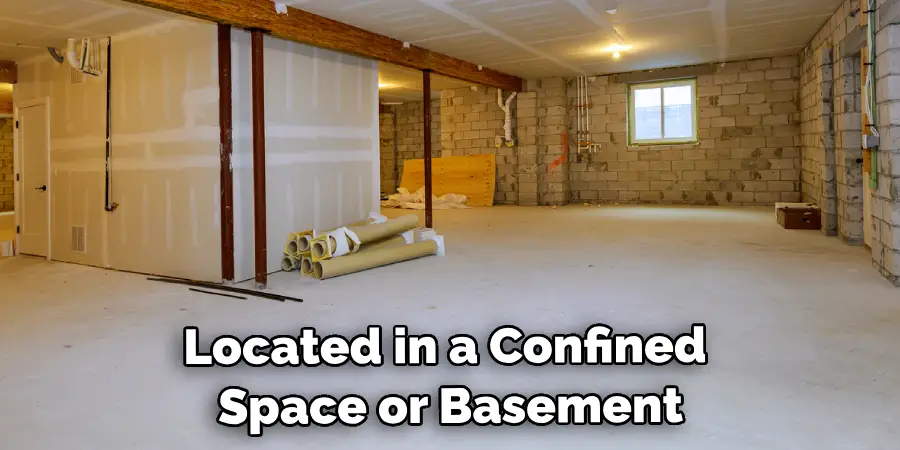
This step helps to mitigate any residual gas that might still be present in the room after the gas supply has been turned off. Always remember safety should be your utmost priority when dealing with gas appliances.
Step 6. Double-Check Everything
After completing all the steps, it’s advised to double-check everything just to ensure that the boiler and its gas supply are entirely turned off. This includes revisiting the boiler switch and gas shut-off valve and also checking the boiler room for any signs of gas smell.
If you detect any gas smell, immediately open all windows and doors, evacuate the house, and call a professional. It’s always better to be safe than sorry when dealing with gas appliances.
Step 7. Post-Shutdown Maintenance
Post-shutdown maintenance is highly recommended to ensure your boiler’s longevity. This includes cleaning the exterior and interior components of the boiler, checking for any signs of wear and tear, and getting any required repairs done promptly.
Look out for any anomalies like leaks, rust, or unusual noises. If you need more clarification on this process, hiring a professional can be a useful choice. Remember, taking care of your boiler even when it’s not in use can lead to significant cost savings in the long run.
Step 8. Insulate the Boiler
After you’ve thoroughly checked and maintained your boiler, consider insulating it. This step helps prevent rust and corrosion caused by condensation over the summer months.
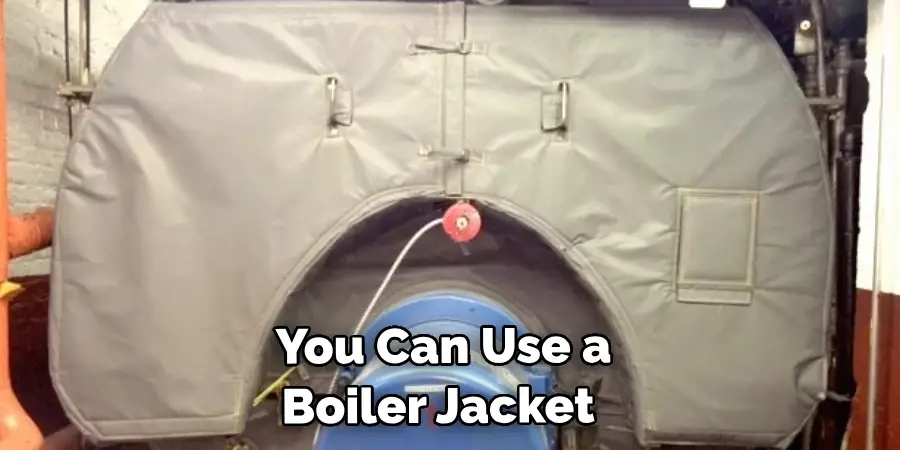
You can use a boiler jacket or blanket explicitly designed for this purpose. Follow the manufacturer’s instructions when applying the insulation to avoid any potential hazards. If you are uncertain about how to do this, professional assistance is recommended. Insulation protects the boiler and helps maintain its efficiency when you need it next.
Step 9. Regularly Check the Boiler
Even when your boiler is off for the summer, it’s a good idea to check on it occasionally. Monitor for any signs of leaks, rust, or other issues that might arise, and take early action if you spot anything unusual. Regular checks can help detect and resolve problems before they escalate, saving you from potentially expensive repairs or replacements in the future.
Step 10. Schedule a Professional Inspection
Once the summer is nearing its end, consider scheduling a professional boiler inspection before you turn it back on for the colder months. An expert can help ensure everything is in proper working order and that it’s safe to restart your boiler. They can also perform necessary maintenance or repairs, ensuring your boiler operates optimally when needed. It’s an investment in peace of mind and the longevity of your boiler.
By following these ten easy steps on how to turn off the boiler for summer, you can save money on your energy bill and ensure the longevity of your boiler.
5 Additional Tips and Tricks
- Safety First: Before turning off your boiler for the summer, ensure the system is cool. Never attempt any maintenance or adjustments on a hot boiler.
- Consult the Manual: Refer to your boiler’s user manual for specific instructions. This will give you a step-by-step guide on safely turning off your boiler.
- Annual Servicing: Summer is an excellent time to get your boiler serviced, as it will be ready for the winter months, and any faults can be identified and fixed in time.
- Energy Savings: Turning off your boiler during the summer can lead to significant energy savings, lowering your utility bills and reducing your carbon footprint.
- Bleed the Radiators: After turning off the boiler, it can be beneficial to bleed the radiators. This process helps to remove any trapped air in the system, improving its efficiency when you turn it back on.
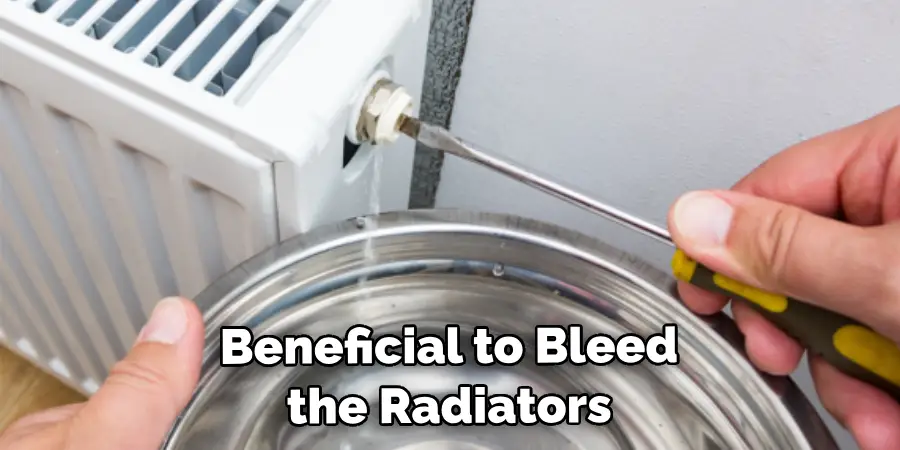
With these additional tips and tricks, you can safely and effectively turn off your boiler for the summer.
5 Things You Should Avoid
- Ignoring the User Manual: Pay attention to the instructions provided in your boiler’s user manual. The guide contains specific information about your boiler model, and you should familiarize yourself with it before attempting to turn off the boiler.
- Skipping Servicing: Avoid the misconception that routine servicing is unnecessary if the boiler appears to be working fine. Regular maintenance can help identify potential issues and prevent future breakdowns.
- Delaying Repairs: If your boiler has developed any faults, do not wait until winter to address them. Summer is an ideal time to get these issues fixed.
- Failing to Switch Off Power Supply: Before turning off your boiler, ensure that the power supply to the unit is off. Overlooking this step can expose you to risks of electrical shock.
- Ignoring Professional Help: If you need more experience or are unsure about any step in the process, feel free to seek professional help. Incorrect handling of the boiler can lead to expensive damage or potential safety hazards.
By avoiding these common mistakes, you can ensure a smooth and safe process of turning off your boiler for the summer.
Conclusion
As the summer season approaches, we must ensure we give our boilers a break and turn them off. Not only does this save us from unnecessary energy expenses, but it also helps reduce carbon emissions and lessen our environmental impact.
Remembering to follow these simple steps on how to turn off boiler for summer will ensure your boiler is adequately switched off for the summer months: shutting off the power, draining any remaining water, and properly covering and storing any detachable parts. Taking care of our boilers benefits us and helps protect future generations. Let’s do our part in contributing to a cleaner and greener world by turning off our boilers during the warmer weather.
And while at it, why not spread the word to your friends, family, and colleagues? We all have a responsibility to take care of our planet; this small action can make a big difference. So, let’s switch off those boilers and enjoy a worry-free summer!

